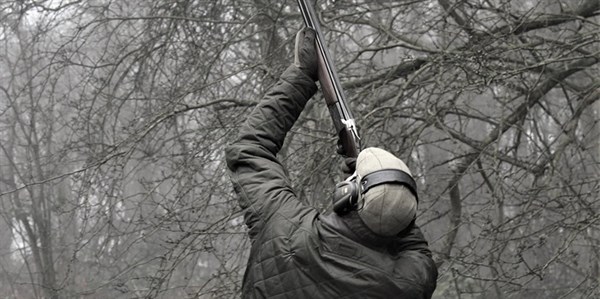1. Over-winter feeding of farmland birds
The study found that during the leanest times of winter, gamekeepers taking part in the survey provided more than 23,426 tonnes of supplementary food for game and farmland birds. Even after the shooting season, the gamekeepers surveyed continued to feed their farmland birds providing more than 4,300 tonnes of grain. This ensures that their wild birds enter the nesting period in healthier body condition, which aids chick production.
2. Tree Planting and woodland management
Tree planting, woodland management and conserving ancient woodlands are considered key elements in helping to reverse declines of important wildlife such as butterflies as well as reducing the impact of climate change, respondents to the survey are proving their worth. Within the survey respondents were found to manage more than 190,000 hectares or 470,000 acres of woodland, which is a huge benefit to woodland birds, other wildlife and ground vegetation. Tree planting is also an important component of gamekeeping and respondents reported that they planted 47.3 ha or 117 acres on average over the past ten years with 82% (nearly a quarter) of respondents reporting that conservation was the main reason for tree planting activities.
3. Wild Bird Crops
Wild bird cover provides a major food source for key songbirds such as tree sparrow, reed bunting song thrush and yellowhammer overwinter. The area of wild bird cover grown by game shoots and funded privately outside Stewardship Schemes amounts to over £2.25 million. This is an encouraging result for songbirds and is a huge saving for the public purse if it were provided under Countryside Stewardship schemes.
4. Moorland Management
The extensive UK heather uplands are unique with heather-dominated moorland supporting a distinctive suite of plant communities. The survey identified that 165 respondents within the survey had heather moorland on the land they manage with 81% undertaking some form of heather canopy management – either cutting or burning small pre-determined areas on a rotational basis. This provides food in the form of new shoots and greater numbers of invertebrates. It also helps mitigate wildfire and new heather is more palatable and nutritious for livestock, deer, mountain hare and grouse.
5. Re-wetting moorland landscapes
Large amounts of moorland were drained after the Second World War to provide a greater area of land for agricultural production and forestry. This was mostly achieved by creating ditches or grips so that water can run off the moor. The survey showed that, contrary to some outdated opinions, 38% of moorland gamekeepers who completed the survey have undertaken moorland rewetting in the last five years, which benefits a host of plants and wildlife. Re-wetting areas can boost invertebrate numbers and helps restore bog vegetation including Sphagnum moss. It also helps improve river water quality and possibly carbon stores as well as reducing flood risk.
In addition, the survey identified that moorland gamekeepers within the survey are carrying out bracken control, which helps to prevent the loss of important heathland, moorland and grassland of conservation value. Priority species to benefit include juniper, pearl-bordered fritillary, black grouse and skylark. It also helps to reduce the impact of disease carrying ticks for both humans and wildlife.
Gamekeepers: Conservation and Wildlife is the result of a survey carried out among members of the National Gamekeepers’ Organisation, The Scottish Gamekeepers Association and the Game & Wildlife Conservation Trust, who carried out the analysis of the survey and produced the final report. The survey, in part follows on from a previous survey carried out in 2011. However, the three organisations wanted to dig deeper into the benefits that game management delivers for habitats and wildlife, specifically, concerning game cover, supplementary food provision, woodland and moorland management. The aim was to improve our understanding of what management is taking place on shoots across the UK and to document the changes that have taken place since 2011.
Save 25% on our most complete package - now only £6.35 a month

Save 25% on GWCT Premium Membership, which includes outdoor insurance, a free copy of our bestselling book The Knowledge, exclusive discounts and much more.
Join online for only £4 a month
Get access to dozens of informative wildlife and land management courses as well as important educational material and legislation updates.